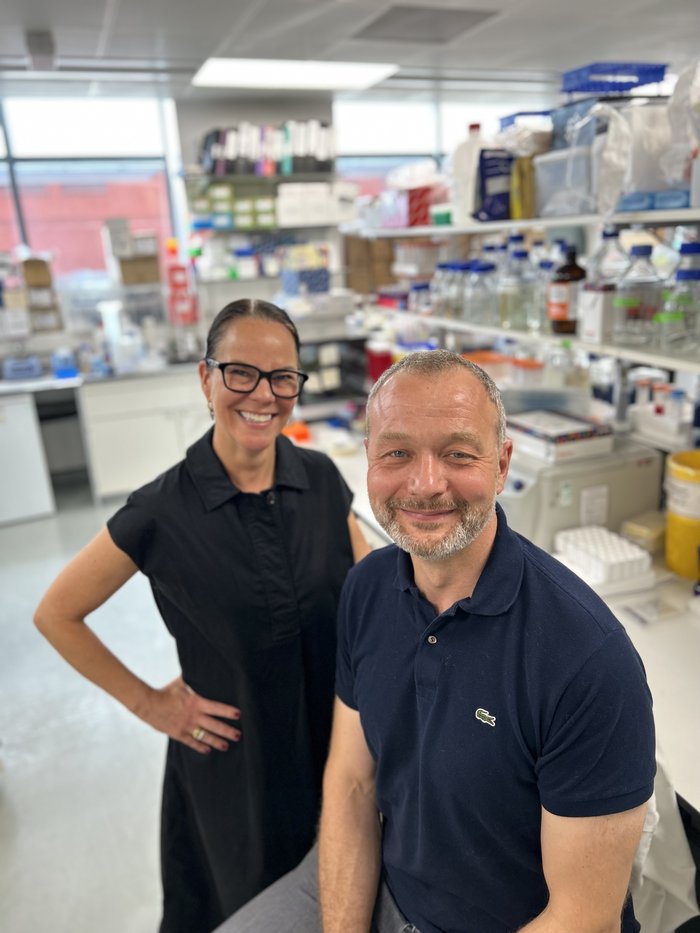Understanding how plasma cells become cancerous in myeloma
Myeloma is a type of blood cancer that affects a type of white blood cell called plasma cells. Professor Tooze hopes to understand more about how plasma cells become cancerous and can divide and multiply out of control, so that new ways to diagnose and treat this disease can be developed.
The challenge
Plasma cells are a type of white blood cell made inside our bone marrow (the spongy material inside some of our bones). They’re an important part of our body’s immune system as they produce antibodies that find and kill bacteria and viruses that cause infections. Because of this special role that plasma cells have, it means they cannot divide and make copies of themselves quickly. However, sometimes these plasma cells transform into cancerous cells called myeloma and gain the ability to divide and multiply rapidly and become out of control.
The project
Professor Tooze and his team want to understand more about how, unlike healthy plasma cells, the cancerous myeloma cells are able to divide and multiply out of control. He plans to study a specific gene called ‘MAF’, which is often linked to the disease. Research has found the MAF gene is present in 10% of people in the early stages of myeloma. Professor Tooze has developed a test to try to understand what the MAF gene does to plasma cells to make the myeloma cancer cells multiply and grow in numbers. He believes conducting this test is key to understanding how plasma cells become cancerous so that new ways to diagnose and treat this disease can be developed.
The future
If successful, and Professor Tooze can use his new understanding of how plasma cells become cancerous to find ways of treating early disease before it becomes aggressive. They hope that this research will allow for quicker diagnosis and treatment of myeloma, giving people a better quality of life and the best possible chance of survival.

